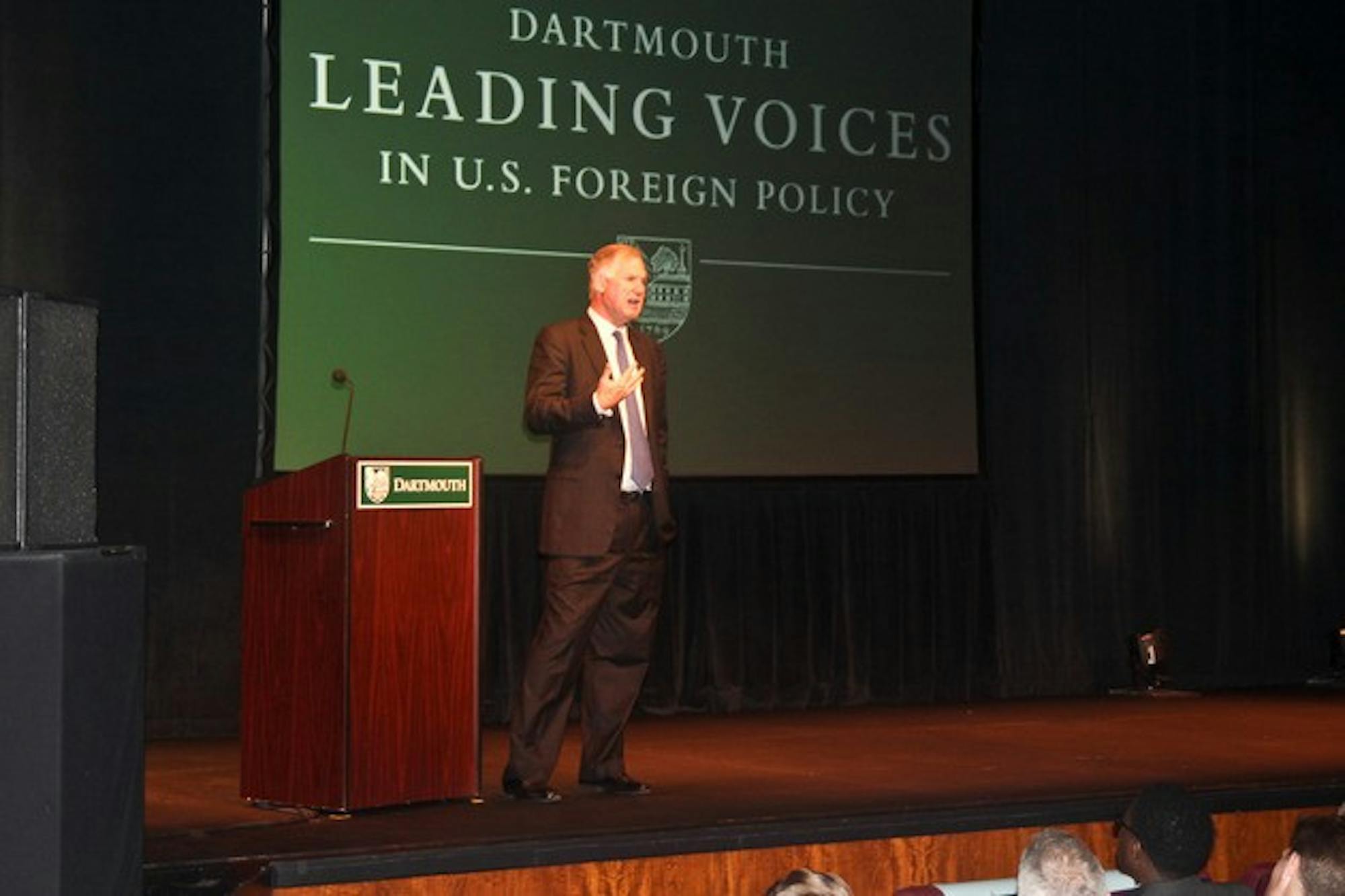In the past year, 431 million people were victims of cyber crime and over two-thirds of the population will be affected by a cyber crime incident during their lifetime, Lynn said. Individuals between the ages of 18 and 31 who extensively use their phones to transmit sensitive information are particularly at risk, he said.
"Just as the Internet has changed our way of life and transformed or eliminated some institutions and businesses, so too it changes how we protect ourselves individually and collectively," he said.
Besides criminal threats, information security also affects the United States as a country, he said. Cyber warfare poses new threats to the private sector, and Lynn said that theft of intellectual property from American companies and the government threatens the country's "technological competitiveness."
In the past, there was a lag between when information about a product or weapon was stolen and when the weapon was actually developed, such as when the Soviet Union stole weapons plans from the United States, according to Lynn. As the speed and volume of data transfer increase, the negative effect of information theft increases as well, Lynn said.
To address the threat, the U.S. and its allies "need to fully employ a range of tools trade, diplomatic and military to halt this hemorrhaging of technology," he said.
U.S. military superiority is also threatened when adversaries are able to gain access to its technological systems and disarm them, Lynn said.
"Information technology has transformed warfare in more fundamental ways than tanks," Lynn said. "Information technology lies at the core of our most important military capabilities."
The United States must ensure that cyber networks are secure, he said.
There is also a danger of cyber attacks through "exploitation of networks," Lynn said. Equally threatening are the disruptions of networks, such as denial-of-service attacks, which attempt to crash internet resources by flooding them with traffic, he said.
"The most dangerous forms of cyber attack lurks on the horizon," he said. "Cyber attacks have been moving up the ladder, potentially now to the destruction of physical property and loss of life.'
Cyber warfare is no longer limited to a few developed nations, he said. Terrorist groups and "rogue states" are now able to develop and use cyber weapons against the United States, he said.
The United States must come up with creative solutions to these problems, and the challenge will lie in connecting private industry and public institutions, he said.
"We need better sharing of threats as they materialize across local, state and national institutions," he said.
New legislation must protect public and private partnerships in order to facilitate these relationships, Lynn said. Similar to the way the American military partners with private industries, the government should work with various companies to mitigate cyber threats.
Students who attend the talk said they enjoyed Lynn's lecture. John D'Antonio '14 said that Lynn's discussion of information security issues was "eye-opening."
Joseph Miller '14 said he appreciated Lynn's clear analysis of his proposed solutions to the problems.
"His explanation of the necessity of linking private and public institutions to solve cyber security threats was clearly explained," Miller said.




